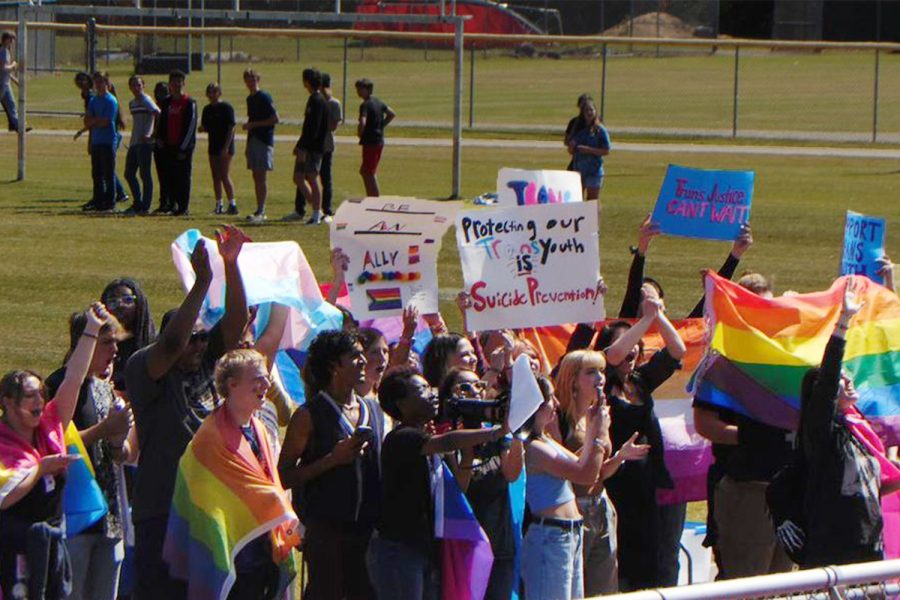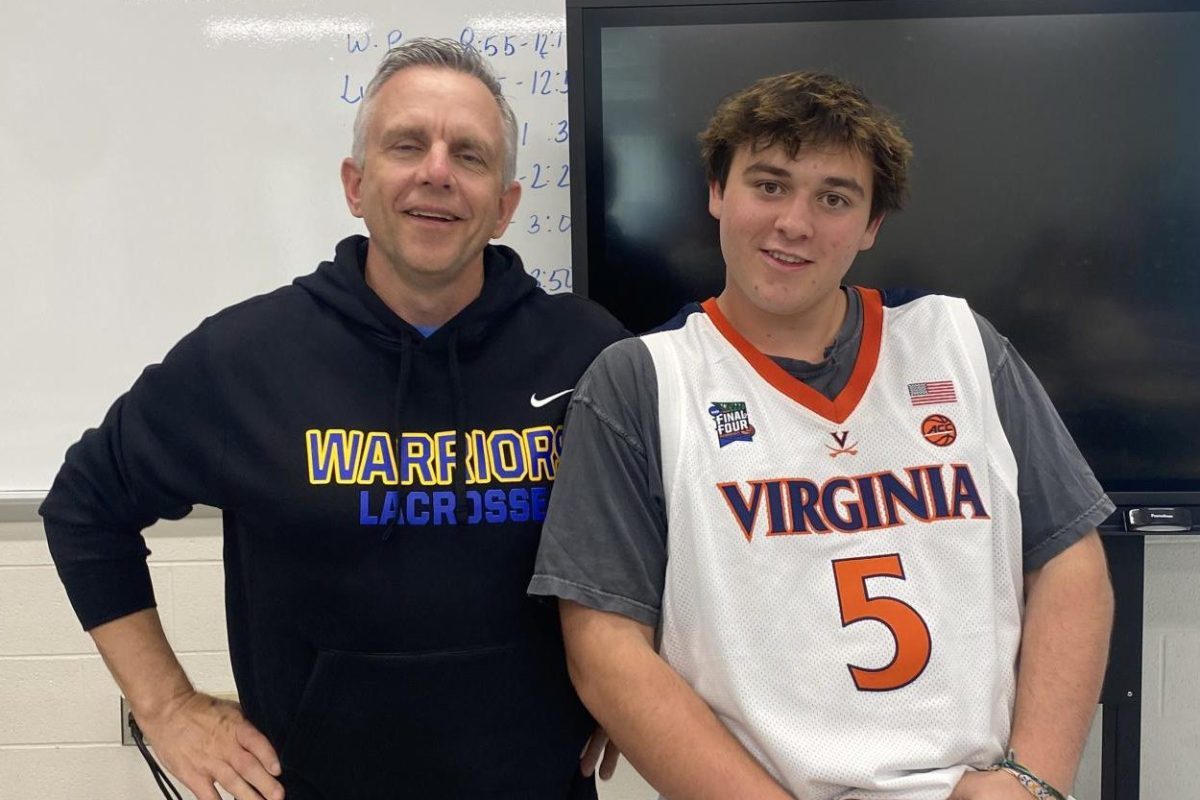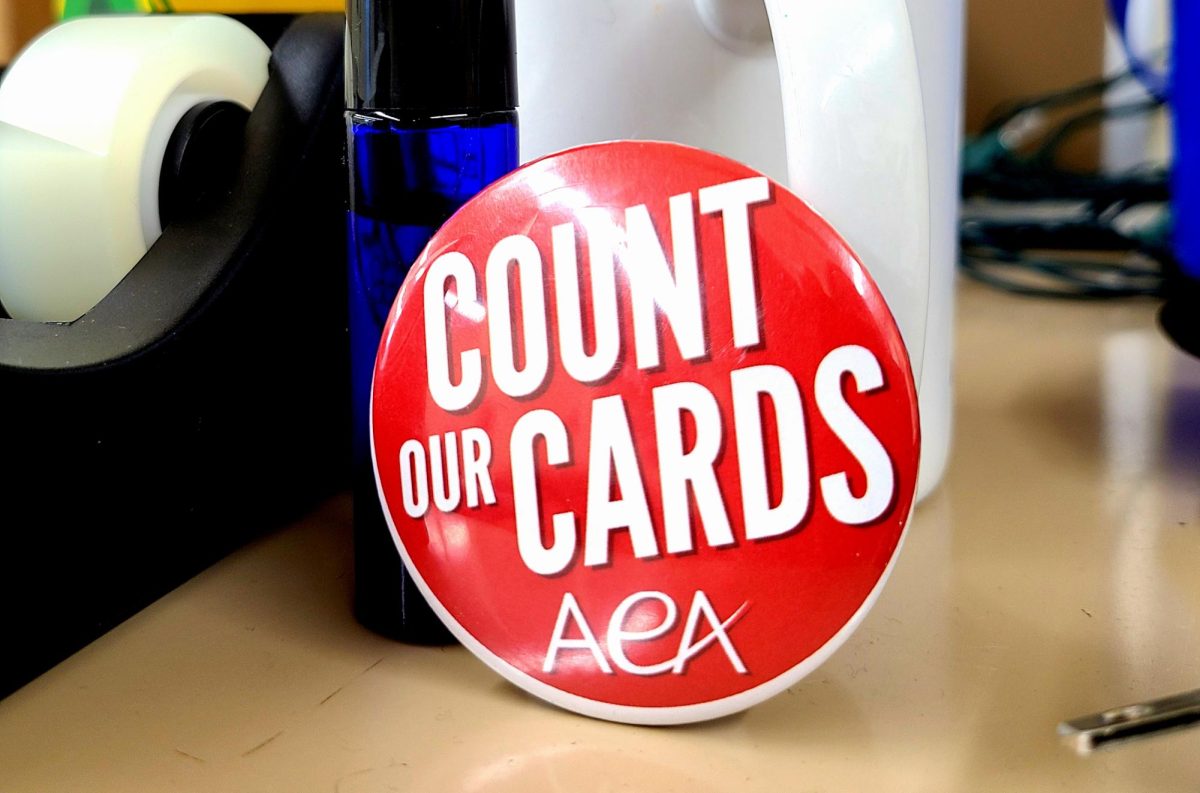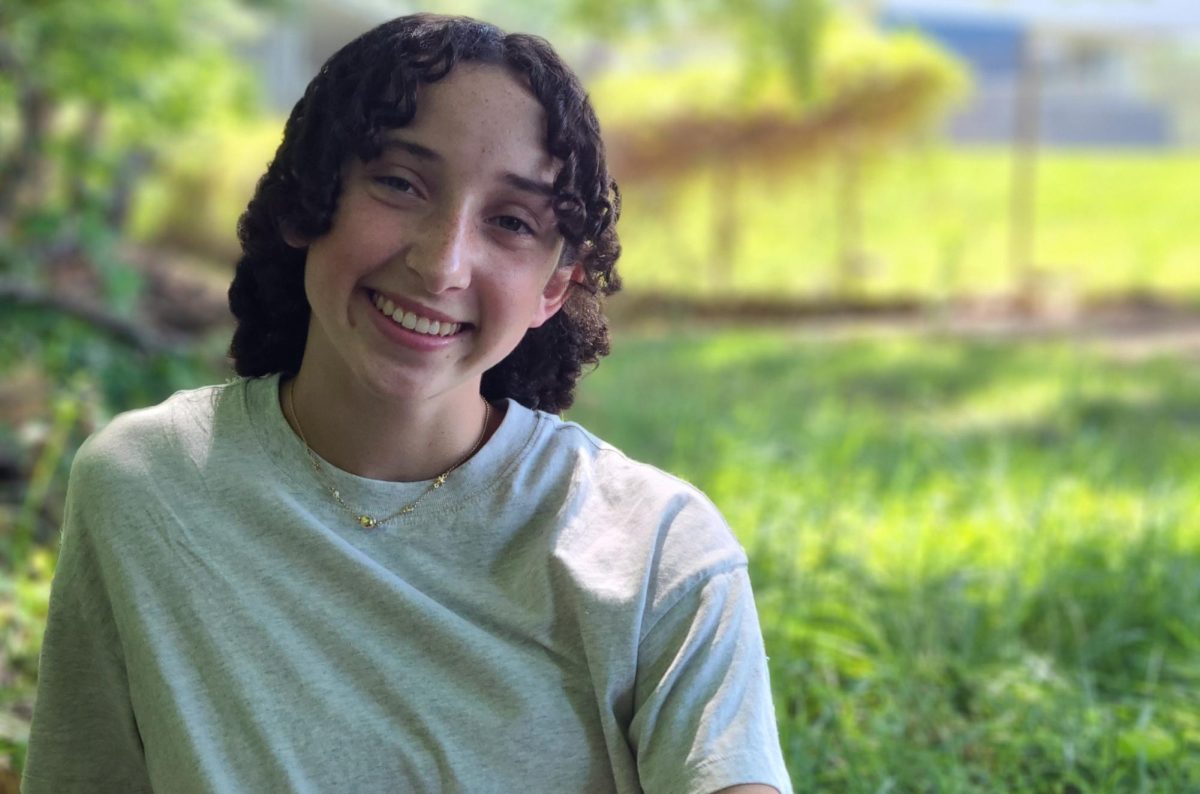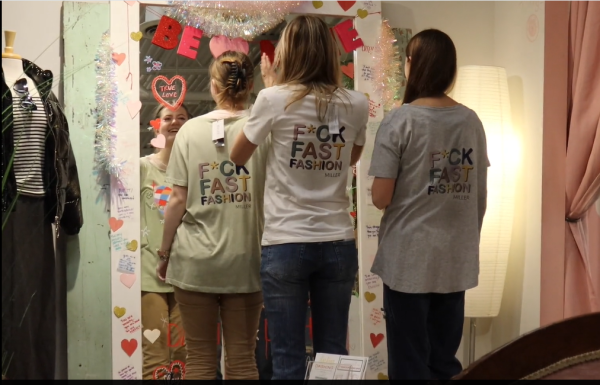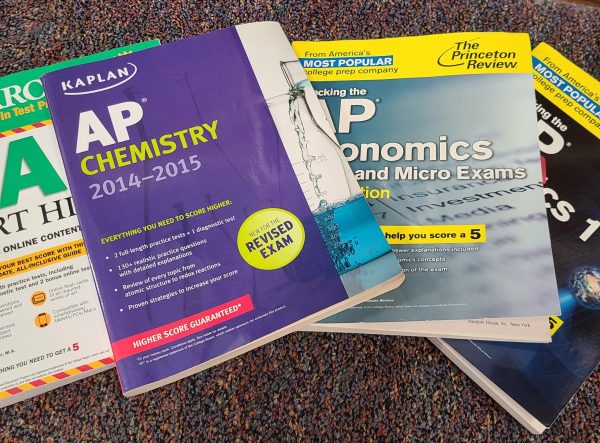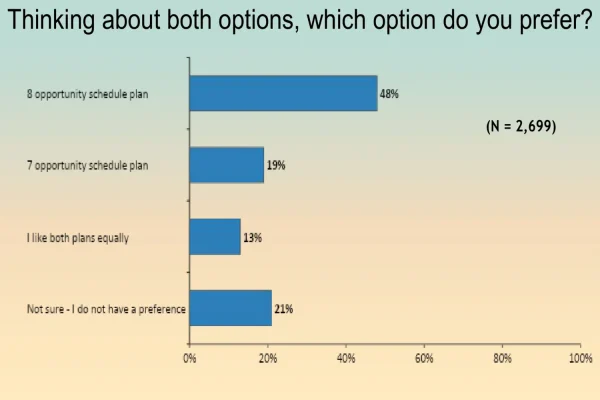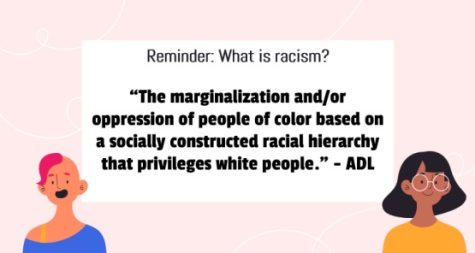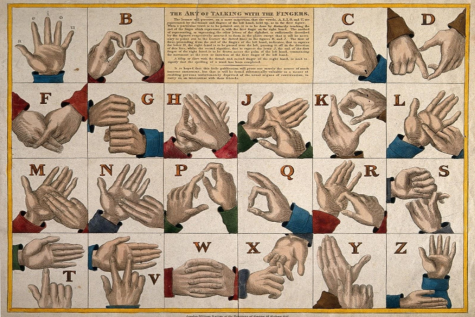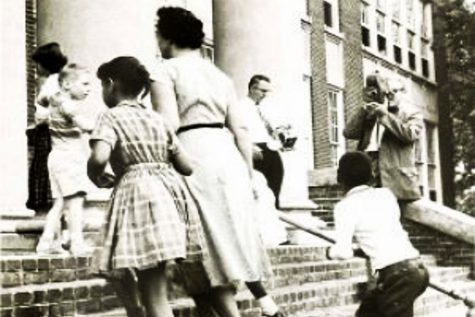Get Them Out of Here: Youngkin’s Model Policies Violate the Rights of Trans Students
Credit: Vikram Kolli
Across the state, students, like these at Princess Anne High School in Virginia Beach, organized walkouts to protest Youngkin’s new model policies.
January 4, 2023
Trigger Warning: This article contains brief mentions of self harm and suicide.
In case you missed it, the Youngkin administration is attacking the basic human rights of Virginia students. Shocker. On September 14th, the governor’s office quietly released new model policies that completely overhaul current, evidence based protections for transgender students in Virginia public schools.
These proposed policies would mandate that students use bathrooms and play on sports teams that correspond with the “biological sex” they were assigned at birth; require that any changes to students’ names or pronouns in school records be approved by parents; and prohibit staff from using affirming language such as a chosen name or accurate pronouns if they contradict these records, and even outs students to their parents in some situations.
The bottom line is simple: these policies are dangerous. If adopted, they are going to encourage public schools to behave totally counter to one of their core duties— to protect their students. They are going to make our schools a hostile and unsafe environment, and they are going to harm children.
When I say harm, I do truly mean harm—as in damage and attack and traumatize. LGBTQ+ students experience higher rates of depression and suicidality than cisgender and heterosexual students, but studies show that using teens’ preferred names and pronouns decreases depression and suicidality by 71% and 65%, respectively (Virginia Youth Survey).
On top of that, studies have found that transgender and nonbinary youth who experienced bathroom discrimination were 1.5 times more likely to attempt suicide in the past year compared to those who did not (Price-Feeney, Myeshia, et al).
Jamie Nolan, the Co-Executive Director of Side by Side, a local organization providing counseling services to LGTBQ+ youth, says that her organization is concerned about both the “physical and mental well-being of LGBTQ+ young people at home” and “exposure to long term impacts such as housing instability, bullying, and assault” if the model policies are enacted.
Nolan also adds that, although the policies are intended to provide guidance for school staff, because “young people often look to teachers and administrators to model peer to peer interactions,” the policies may change the norms for these interactions and create a dangerous new precedent that transphobia and homophobia are tolerated behavior for students.
Needless to say, these policies are oppressive and catastrophic to the well-being of LGBTQ+ students, but there is an additional layer of complexity to all this— these policies are illegal.
In 2020, Virginia passed a law that required that all policies concerning transgender students be created “in accordance with evidence-based best practices.” It was this law that catalyzed the current model policies that actually protect transgender students. Youngkin’s proposed model policies not only lack an empirical basis but also disregard the established evidence for these “best practices.”
Moreover, the Civil Rights Act, which being a federal law, is supreme to any state law, protects against discrimination on the basis of sex, which includes sexual orientation and gender identity.
Youngkin says the policy revision is about “preserving parental rights” and “upholding the dignity and respect of all public school students,” but it’s really about using transphobia to score political points, and putting the livelihood of our youth in jeopardy is just a byproduct. Even if this was actually about parental rights, one person’s rights cannot supersede another’s— thus a parent’s right to make decisions concerning their children is not unlimited and cannot limit a child’s freedom of expression.
Doing a deep dive into the countless other laws that back up the illegality of these policies, wouldn’t change the key concept here: these policies are illegal for a reason.
The science is clear. The experts are clear. The law is clear. The current model policies are lifesaving in the most literal sense of the word, and Youngkin’s are the very opposite.
The good news is that many people see these policies for what they are and are fired up to fight them. Most notably, during the public comment period, enough of the public correctly suggested that these policies are illegal that the VDOE had to instate an additional 30-day waiting period for these claims to be reviewed.
So what? If these policies are unlikely to be implemented, and if they are, are likely to be struck down in court, why should you care? Care because simply the proposal of these policies harms children. Studies show that 85% of transgender and nonbinary youth, and two-thirds of all LGBTQ youth, say that recent debates around anti-trans bills have negatively impacted their mental health (The Trevor Project). Care because this is just the latest manifestation of the national attack on the rights of trans people and any success in Virginia, will only fuel bigotry.
The ACPS School Board, like other school boards across the state, has stated that it “respectfully but vigorously” opposes Youngkin’s policies, which directly oppose ACPS’ current Policy on the Treatment of Transgender and Gender-Expansive Students.
Kudos to the ACPS School Board for supporting model policies that are actually evidence-based and actually “upholding the dignity and respect of all public school students.” School boards have become the last line of defense for preserving students’ rights. Because these rights— and by extension school boards— are more under attack than ever, supporting existing board members and new candidates who will defend students’ rights is essential for schools to remain safe spaces for students.



